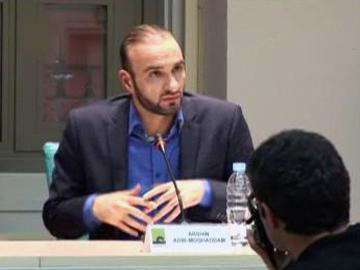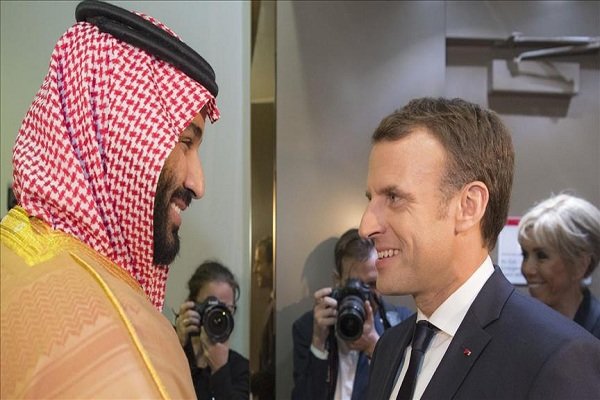Today, the Saudi government has called for regional countries to be part of any negotiations over Iran's nuclear program. The kingdom's demanded its inclusion in the possible talks after French President Emmanuel Macron declared that Saudi Arabia should be included in any future negotiations with Iran recently, added that excluding regional states from previous nuclear talks on JCPOA, with Iran in 2015 was a big mistake.
Macron repeated demands voiced by Saudi Arabia, the United Arab Emirates, and the Israeli regime.
To shed more light on the issue we reached out to Professor Arshin Adib-Moghaddam, Chair of the Centre for Iranian Studies at the London Middle East Institute.
Commenting on the French President's request on parties to the JCPOA despite Iran's opposition and without coordinating with other European parties to the nuclear deal, Arshin Adib-Moghaddam said, "President Macron has proven to be an incredibly inconsistent leader, with no real resemblance of the better traditions in French diplomacy. He has presided over an incompetent response to the pandemic, he cracked down on demonstrators with arbitrary violence and he is playing to right-wing sentiments in France by securitizing the Muslim-French minority and their civil institutions. President Macron has proven to be an incredibly inconsistent leader I am citing these issues as examples for a particularly undiplomatic form of governance – bad governance so to say. The idea to include Saudi Arabia must be seen within that context, i.e. the inability of Macron to think strategically and in more analytical detail about national and international relations. Someone like the late French President Jacques Chirac would know what I am referring to here."

Regarding the possible negative effects of the unreasonable request of President Macron on the potential nuclear talk between Iran and the JCPOA member states, he described Macron's suggestion as " ludicrous" and noted, "The suggestion bordered on being ludicrous. The idea to have a regional dialogue is a good one, of course. But neither the legal framework constituting the JCPOA, nor the bilateral relations between Saudi Arabia and Iran allowed for Macron’s idea. neither the legal framework constituting the JCPOA, nor the bilateral relations between Saudi Arabia and Iran allowed for Macron’s idea So he is either looking for an excuse to jeopardize the talks and the agreement even further, or he is simply uninformed and dangerously naïve. In both cases the result is the same: He has proven to be a leader who is inconsistent and does not seem to care much for European diplomacy geared to multilateral trust-building measures and peace. His seeming “boldness” stems from insecurity."
Criticizing some in the US and Europe insisting on including Iran’s conventional missile program in possible future nuclear talks and its unconstructive effect on the outcome of the potential future talks to review JCPOA, Adib Moghaddam said, The request is nothing new. The sanctions regime against Saddam Hussein started with the WMD infrastructure (alleged and real) and turned towards dismantling his missile capability as a means to destroy any ability of his state to defend itself. This was the reason why he was easily unseated in the Third Persian Gulf War in 2003. Iran’s missile program is a matter of national sovereignty, as is the case for any other country. Iran’s missile program is a matter of national sovereignty, as is the case for any other country There is an opportunity for peace with Biden, that’s for sure. But that opportunity must be grasped by fresh diplomacy that starts with a set of verifiable trust-building measures and translates into a wider security dialogue under multilateral guidance. Iran should be pro-active under the new, hopefully, democratically-minded President. A bold suggestion to reach a grand bargain with the United States and the European Union which would include a proposal for a WMD-free zone in West Asia and North Africa and bilateral non-aggression pacts would be one way to frame such a grand strategy.
Interview by Payman Yazdani

























Your Comment